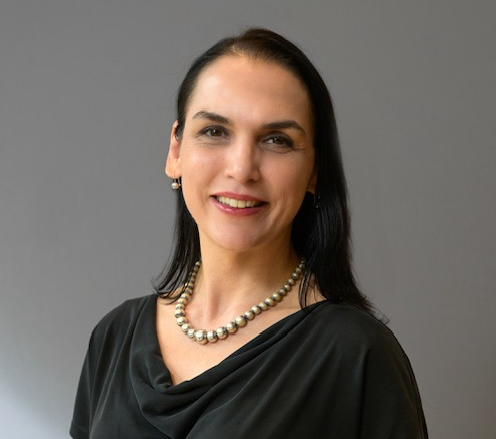Sanem Soyarslan

Bio
I am an Associate Professor of Philosophy at NC State University. After receiving my D.S.U. (Diplôme Supérieur d’Université) in political science (2000) from Université Panthéon-Assas (Paris II) and my M.A. in philosophy (2005) from Boğaziçi University in my native Istanbul, I earned my Ph.D. in philosophy (December 2011) at Duke University. Before arriving in Raleigh in Fall 2013, I taught at Boston University for two years as a Visiting Assistant Professor of Philosophy.
I was the recipient of the NC State College of Humanities and Social Sciences Outstanding Junior Faculty Award in the Humanities in 2020.
Website
http://ncsu.academia.edu/SanemSoyarslan
Office Hours
- Tu: 12 pm – 1 pm
Th: 12 pm – 1 pm
Research Publications
Soyarslan S. (2025), “Loneliness, “Solitude, and Philosophic Contemplation,” Dialogue: Canadian Philosophical Review / Revue canadienne de philosophie, https://doi.org/10.1017/S0012217325000113
Soyarslan, S. (forthcoming), “Spinoza’s Changing Views on Humility Explored Through a Cartesian Lens” in Justin Steinberg (ed.) Oxford Philosophical Concepts: Humility, A History, Oxford University Press.
Soyarslan, S. (forthcoming), The entries on acquiescentia (mentis, in se ipso), love, and pride and humility in Justin Steinberg and Karolina Hübner (eds.) Cambridge Spinoza Lexicon, Cambridge University Press.
Soyarslan, S. (2024), “Spinoza’s Authentic Solitude,” The Southern Journal of Philosophy, https://onlinelibrary.wiley.com/doi/10.1111/sjp.12603
Soyarslan, S. (2024), “How to Understand the Ineliminable Weakness of Finite Modes in Spinoza,” History of Philosophy Quarterly, Volume 41, Number 1, 23-44.
Soyarslan, S. (2023), “Reply to Nadler: Spinoza’s Free Person and Wise Person Reconsidered,” Journal of Spinoza Studies, no. 2: 60–76, doi: https://doi.org/10.21827/jss.2.2.41365
Soyarslan, S. (2023), “The Power and Limits of Friendship in Spinoza’s Ethics,” British Journal for the History of Philosophy, https://doi.org/10.1080/09608788.2023.2173137
Soyarslan, S. (2021), “Spinoza’s Account of Blessedness Explored Through an Aristotelian Lens,” Dialogue: Canadian Philosophical Review / Revue canadienne de philosophie, https://doi.org/10.1017/S001221732100010X.
Soyarslan, S. (2020) “From Humility to Envy: Questioning the Usefulness of Sad Passions as a Means towards Virtue in Spinoza’s Ethics,” European Journal of Philosophy, 28:1, pp. 33-47.
Soyarslan, S. (2019) “Two Ethical Ideals in Spinoza’s Ethics: The Free Man and The Wise Man,” Journal of the American Philosophical Association, 5:3, pp. 357-370.
Soyarslan, S. (2018) “Spinoza’s Critique of Humility in the Ethics, The Southern Journal of Philosophy, https://doi.org/10.1111/sjp.12292
Soyarslan, S. (2016) “The Distinction between Reason and Intuitive Knowledge in Spinoza’s Ethics,” European Journal of Philosophy 24 (1), pp. 27-54.
Soyarslan, S. (2014) “The Susceptibility of Intuitive Knowledge to Akrasia in Spinoza’s Ethical Thought,” British Journal for the History of Philosophy 22, pp. 725-747.
Soyarslan, S. (2014) “From Ordinary Life to Blessedness: The Power of Intuitive Knowledge in Spinoza’s Ethics,” in Matthew Kisner and Andrew Youpa (eds.) Essays on Spinoza’s Ethical Theory, Oxford University Press: Oxford, pp. 236-257.
Translation from French to Turkish: Balibar, Etienne. (2004) Spinoza ve Siyaset (Spinoza et la Politique), Otonom Publishing, Istanbul.
Education
Ph.D. Philosophy Duke University 2011
Area(s) of Expertise
I work in the history of early modern philosophy, with a particular emphasis on Spinoza. In addition to early modern philosophy, I have an ongoing interest in ancient ethical theories, especially Aristotle’s. I am also interested in the history of ethics in general, with a comparative emphasis on ancient and modern ethical theories. I work on projects which, broadly construed, lie at the intersection of early modern philosophy and history of ethics.